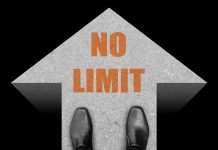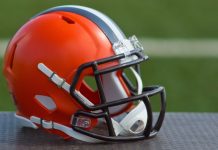The Nevada Gaming Control Board (NGCB) had said no again to the notion of sports betting ticket exchanges in the state.
At a meeting on Thursday, May 23, the NGCB rejected PropSwap’s proposal that wagering companies should be allowed to facilitate the trading of sports bets.
PropSwap was outlawed by regulators in Nevada in 2021 after the NGCB found its model to be illegal as it didn’t have a gaming license, Nevada Senior Deputy Attorney General John Michela said.
To get around that, PropSwap had proposed Regulation 5.240 to create a new “betting ticket resale service provider” category in the state’s legal sports betting industry. Companies with that designation would have held the right to run an online sports betting ticket exchange without a typical gaming license.
However, the NGCB on Thursday turned down the idea, citing various concerns.
“I’m a big believer in new concepts and entrepreneurship… but I have a number of concerns about this activity in Nevada. Is this something the Nevada gaming industry needs and customers in Nevada need and want?” Chair Kirk Hendrick asked in Thursday’s session.
“This is a good draft of what could happen and I would say in the future it may be looked at again,” he concluded. “But from where I sit today, I’m not in favor of recommending it to the commission.”
He also questioned how much demand there would be for these types of exchanges in Nevada. Members also voiced concerns about the potential exposure to money laundering and the difficulties of know-your-customer and player protection safeguards.
PropSwap is a proponent of a bill in the Nevada legislature to legalize the service which has failed to advance but could return in 2025. The issue could be revisited in the future, said Hendrick, but he found there was no justification for implementing it now.
How does PropSwap work?
PropSwap’s system allows gamblers to sell unsettled tickets in something resembling a peer-to-peer version of a wager cash-out. It essentially offers a secondary marketplace for licensed sportsbook-sold sports tickets. The seller gets a guaranteed payout while the buyer gets a bet they want, most likely because the potential winnings are higher than were otherwise available to them.
PropSwap takes a 10% commission on the sale price and also makes money by levying a 3% fee on all account deposits. PropSwap’s attorney Marc Rubinstein told the NGCB that the company would be willing to pay a gross gaming revenue tax on the commissions it charges.
PropSwap currently operates in more than 20 states but was pushed out of Nevada in 2022. Some of its markets granted PropSwap a unique sports wagering license but because no new bets are created on the platform, others have argued that it doesn’t fulfill the definition of a betting operation.
The dismissal by the NGCB ends a protracted hearing that began soon after PropSwap ceased operations in Nevada nearly three years ago. It was turned down by the district court in February 2022, appealed to the Nevada Supreme Court, and sent into the court’s settlement program, and wound up at Thursday’s meeting.
Colorado overcame hesitancy
The Nevada rejection follows a similar situation in Colorado last year.
In June 2023, the Colorado Limited Gaming Control Commission voted to delay the introduction of new rules that would have authorized sports betting exchanges in the state. In the Centennial State, operators would have paid taxes only the commissions from winning bets.
Colorado’s commission, however, raised concerns of tax collection and the all-around repercussions.
However, the state ultimately approved regulations later last summer to legalize and regulate exchange wagering in the U.S., joining New Jersey on that front.
New Jersey currently has two licensed exchange operators offering peer-to-peer betting, Prophet Exchange and Sporttrade, the latter of which also went live in Colorado last August. But Prophet Exchange’s co-founder Jake Benzaquen revealed last week that it will shutter its operations in the Garden State as of May 28.














